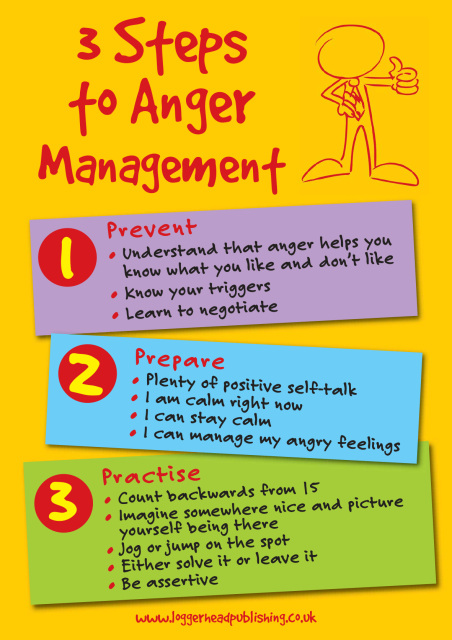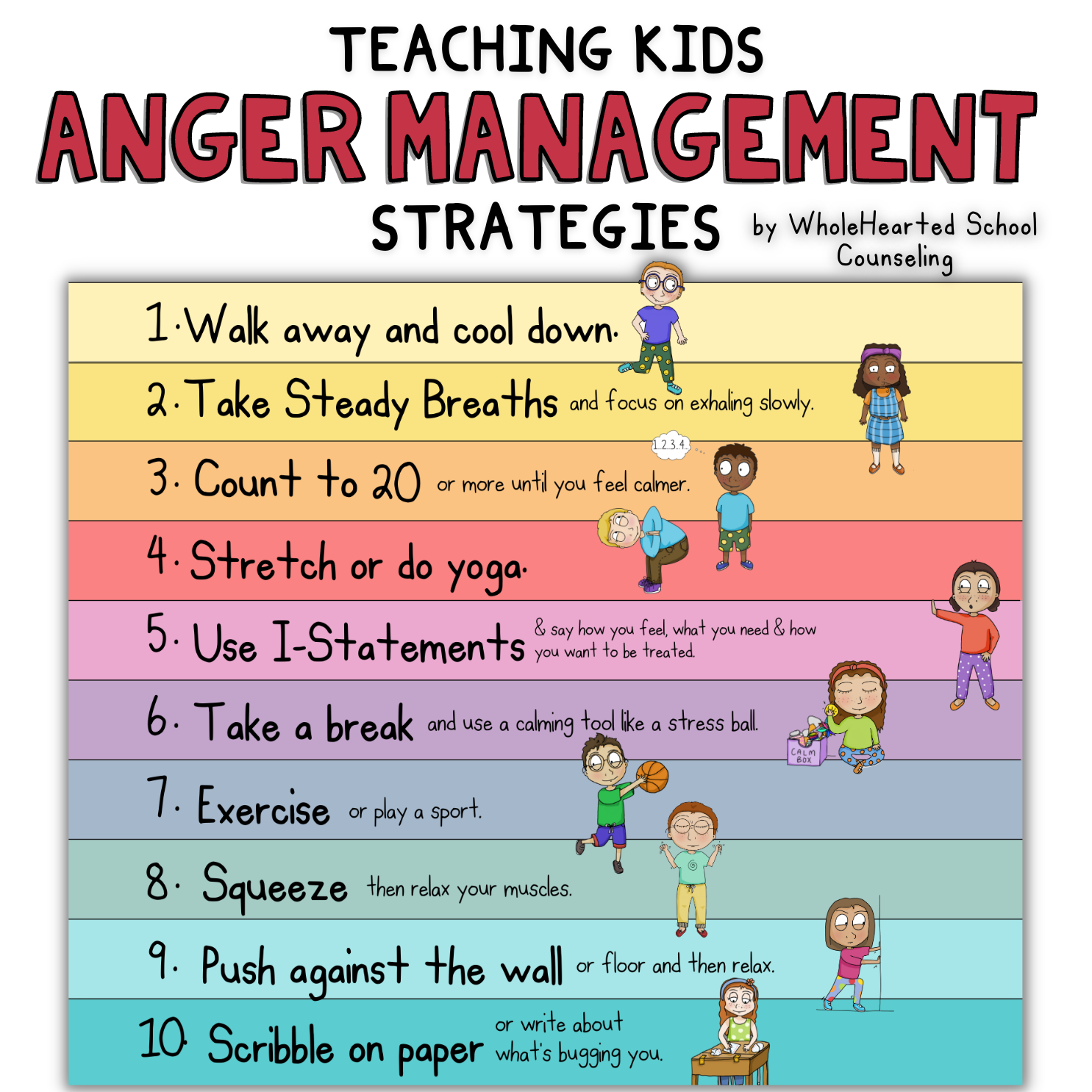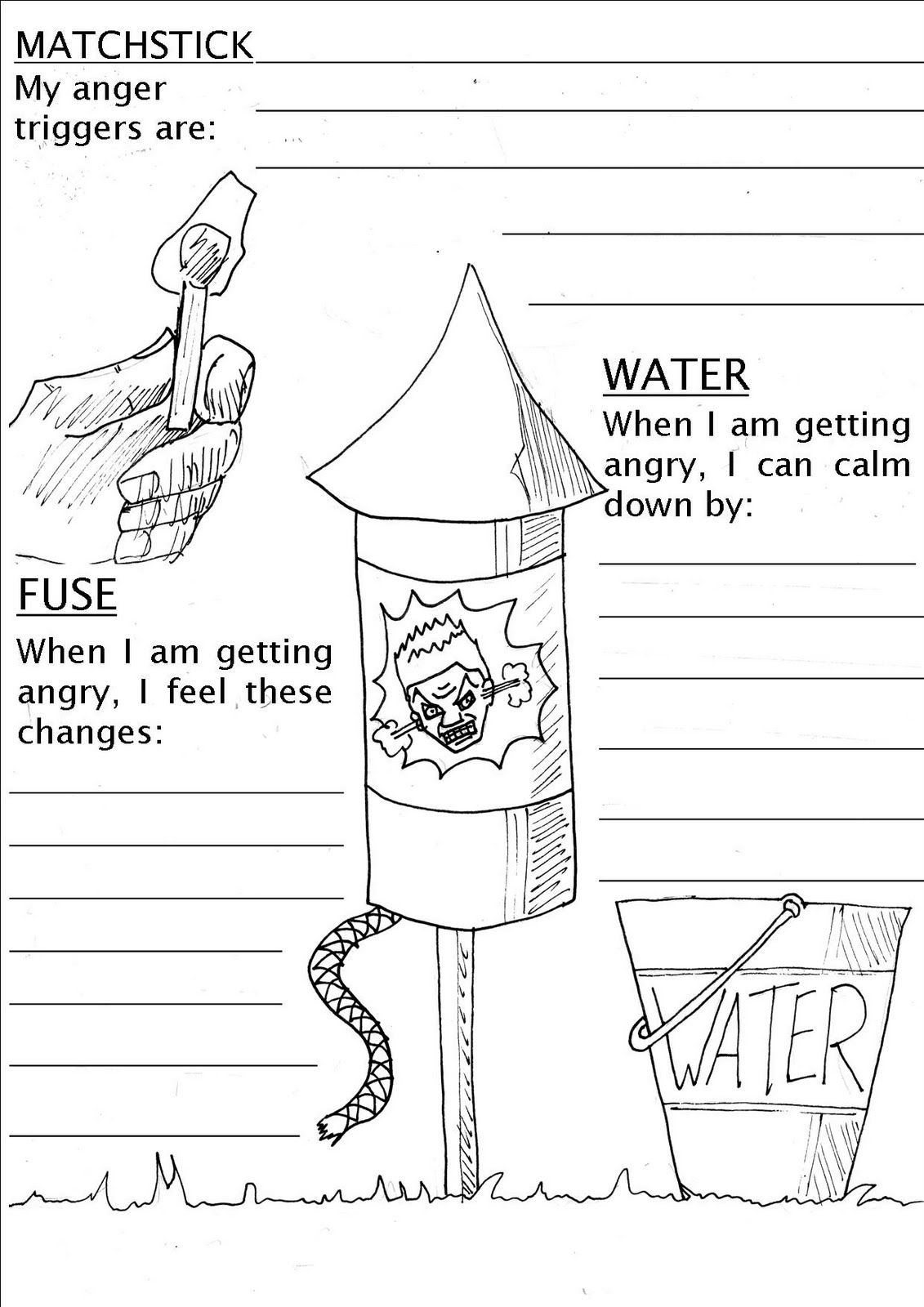5 Anger Management Worksheets for Emotional Control

Anger is a natural emotion that everyone experiences at some point. While anger itself isn't inherently bad, how we manage and express it can significantly impact our mental health, relationships, and even our physical well-being. This blog post is dedicated to exploring five effective anger management worksheets designed to help individuals gain better control over their emotions. By integrating these worksheets into your routine, you can enhance your emotional intelligence, manage stress better, and foster healthier interactions with others.
Understanding Anger and Its Impact

Before diving into the worksheets, it’s crucial to understand why anger management is important. Anger, when uncontrolled, can lead to:
- High blood pressure
- Heart disease
- Strained relationships
- Depression
- Anxiety
Moreover, unmanaged anger can lead to aggressive behavior, which might alienate friends, family, and colleagues. Developing emotional control not only benefits your health but also improves your quality of life by promoting more positive interactions and reducing conflicts.
Worksheet 1: Anger Journal


An Anger Journal is a fundamental tool for anyone looking to manage anger more effectively. Here's how to use this worksheet:
- Date & Time: Note when the anger occurred. This helps in recognizing patterns.
- Situation: Describe what happened, focusing on the triggers.
- Intensity: Rate your anger on a scale from 1 to 10.
- Thoughts & Feelings: Record what you were thinking and feeling at the time.
- Body Sensations: Notice any physical responses associated with your anger.
- Reactions: Describe your behavior or the urge to act in certain ways.
- Consequences: Reflect on what followed your anger.
By documenting these aspects, you gain insights into the triggers and your habitual responses to anger, which is the first step towards changing your reactions.
📝 Note: Consistency in journaling is key. Regular entries allow for better tracking and understanding of anger patterns.
Worksheet 2: The A-B-C Model of Anger

The A-B-C model stands for:
- A - Activating Event: What happened to trigger your anger?
- B - Beliefs: What thoughts or beliefs influenced your feelings of anger?
- C - Consequence: What was the outcome of your anger?
Here’s how to work through this worksheet:
- List the activating event that triggered your anger.
- Write down the beliefs or thoughts associated with that event.
- Note the consequences or how you reacted to those beliefs.
Understanding the link between our beliefs and our reactions can help us modify our thoughts to reduce the frequency and intensity of anger.
Worksheet 3: Thought Stoppers Technique


Anger often stems from certain thought patterns or irrational beliefs. This worksheet helps you to:
- Identify and list thought patterns that commonly lead to anger.
- Create ‘stop signs’ or counter-statements for each thought pattern.
- Practice using these stops signs when you notice anger rising.
The idea is to interrupt the anger cycle at its cognitive level before it escalates into action.
💡 Note: This technique works best when practiced regularly. Like any skill, interruption of thought patterns requires time and repetition to become second nature.
Worksheet 4: Relaxation Techniques

Anger can manifest in physiological responses like increased heart rate and muscle tension. Using relaxation techniques as part of your anger management strategy can be incredibly beneficial:
- Deep Breathing: Instructions on how to do deep breathing to calm your body.
- Progressive Muscle Relaxation: A step-by-step guide to progressively relaxing each muscle group.
- Visualization: Imagine a serene place or event to decrease stress levels.
Include a schedule to incorporate these practices daily or when you feel anger building up.
| Technique | Description | Duration |
|---|---|---|
| Deep Breathing | Inhale deeply for 4 seconds, hold for 7, and exhale for 8 seconds. | 3-5 minutes |
| Progressive Muscle Relaxation | Start from your toes and work up, tensing each muscle for 5 seconds before relaxing. | 10-15 minutes |
| Visualization | Envision a calm, peaceful place, focusing on all sensory details. | 5-10 minutes |

Worksheet 5: Assertiveness Training

Many people get angry because they fail to express their needs or assert themselves properly. This worksheet helps:
- Express Needs: Practice stating your needs clearly and calmly.
- Use “I” Statements: Learn to say “I feel…” rather than accusatory “You always…”
- Role Play: Simulate scenarios where assertiveness is needed, practicing responses.
By mastering assertiveness, you reduce the chance of pent-up frustration, which often leads to anger.
In summary, these five anger management worksheets offer different approaches to understanding, controlling, and expressing anger healthily. Each worksheet provides unique insights into the nature of your anger, helping you to dismantle negative cycles and foster healthier emotional habits. From reflective journaling to learning new communication techniques, these tools empower you to take charge of your emotions, leading to improved mental and physical health, and better interpersonal relationships.
How often should I use these worksheets?

+
The effectiveness of these worksheets increases with regular use. Aim for daily practice, especially when starting out, to build a routine.
Can children benefit from these worksheets?

+
Yes, children can benefit from modified versions of these worksheets. Simplifying the language and using more visuals can make the techniques accessible to younger audiences.
What if I don’t feel any change after using the worksheets?

+
Changes in behavior and emotional response take time. Continue using the worksheets, be patient with yourself, and consider speaking to a therapist for additional support.